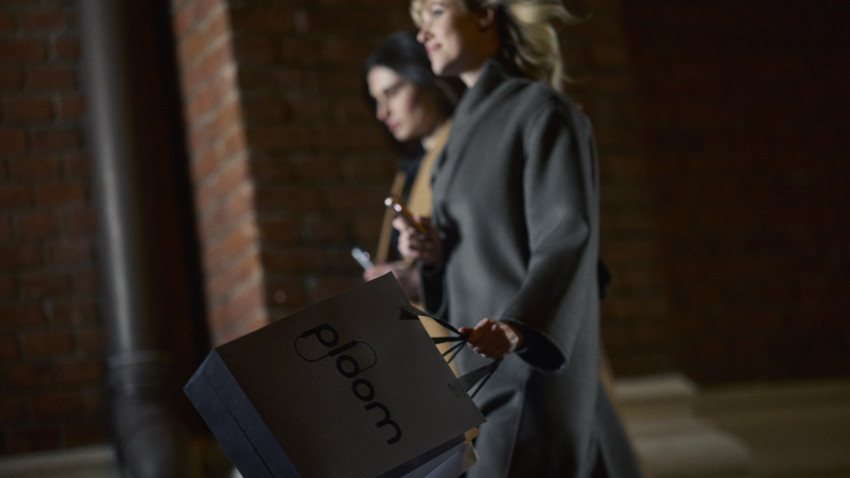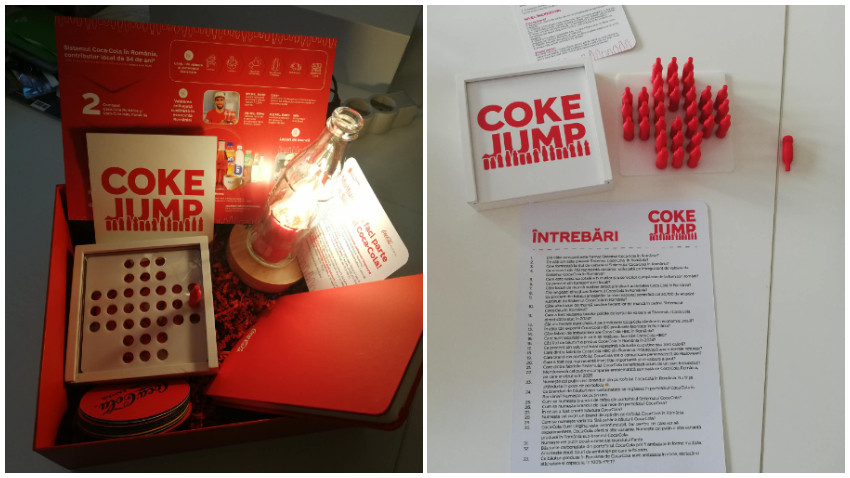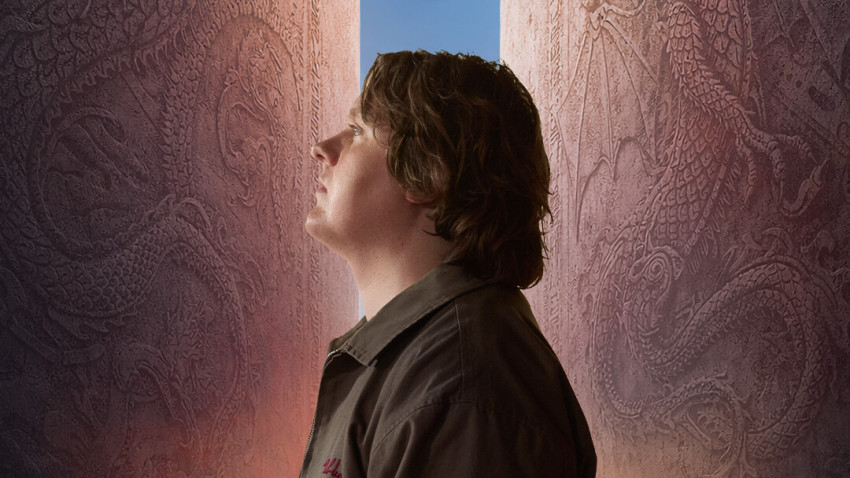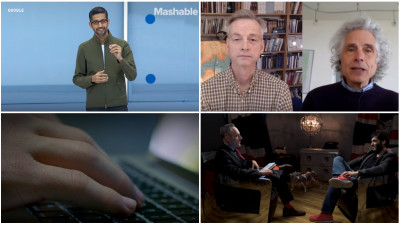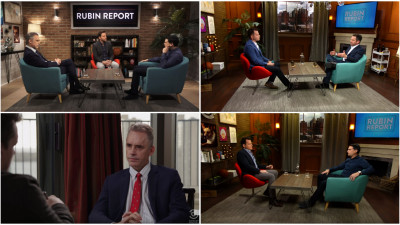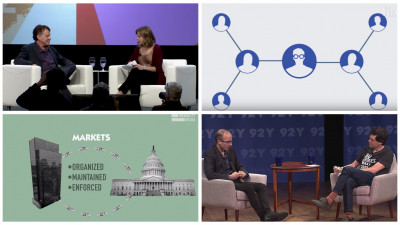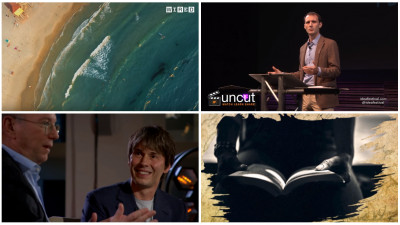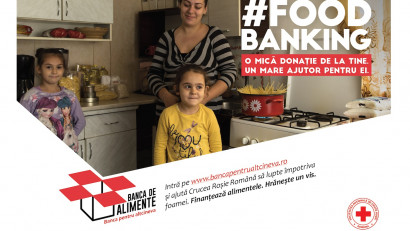Diferenta e risipa si gunoiul din spatele nostru. Pentru weekendul acesta avem o lista cu video-uri care ne ajuta sa intelegem mai bine ca (oricat de lustruit ar fi acest cliseu) chiar suntem ceea ce mancam. Si, mai ales, ceea ce ramane dupa ce mancam. Sunt, mai jos, cateva video-uri care vorbesc despre risipa si initiativele recente care se lupta cu ea. Ocazie cu care ne reamintim si cateva ciudatenii ale speciei umane, cum ar fi, de exemplu, discriminarea morcovilor strambi si ale tuturor legumelor care incalca legile formelor perfecte.
Trecem apoi la reciclare, dar nu cea obisnuita de genul sticla la sticla si hartie la hartie. "Pagpag" este un obicei din Manila care recicleaza resturile din restaurante. In Zabbaleen, zeci de mii de oameni traiesc folosind tot ce pot dintr-o groapa de gunoi: de la mancare, la jucarii. Ajungem apoi la hrana propriu zisa si tulburarile de alimentatie. Suntem aici, in epoca in care mai multi oameni sufera din cauza obezitatii decat din cauza foamei.
War on Waste
"It breaks our hearts to throw this much food away". Craig Reucassel visits a Banana Farm and discovers how much fruit is thrown away before it even hits the supermarkets.
Food Waste
If food waste were a country, it would be the third biggest source of carbon pollution (via The Years Project).
French supermarkets are banned from throwing out unsold food
Edible food must be donated to charity.
This woman spends her life fighting food waste
One woman's battle against food waste.
Why Zero-Waste Grocery Shopping Matters
Shopping for food can be one of the most wasteful parts of our lives — here are some tips and tricks for going waste-free at the grocery store
Gourmet Food Waste
This restaurant is reducing food waste by turning surplus foods into gourmet dishes.
Ce putem face pentru a preveni risipa de alimente
”Ce putem face pentru a preveni risipa de alimente?!” Un scurt video cu sfaturi care ne pot ajuta sa devenim consumatori inteligenti.
Documentar "Risipa de hrana in Romania"
Documentarul Risipa de Hrana in Romania este realizat in cadrul proiectului proiectul „Romania impotriva risipei de hrana” desfasurat de Asociatia MaiMultVerde, in parteneriat cu FoodWaste Elevetia si Centrul de Resurse pentru Participarea Publica.
OzHarvest Market - Australia's first rescued food supermarket
OzHarvest Market is Australia's first rescued food supermarket, making food that would otherwise go to waste available to everyone, especially those who need it most!
Stop wasting food: Selina Juul at TEDxCopenhagen 2012
Consumers are the key players in reducing food waste. Within the last 4 years, the Danish Stop Wasting Food movement (Stop Spild Af Mad) has grown from a small Facebook group to the biggest Danish NGO against food waste, influencing the retailers as well as the politicians and helping to put the topic on EU's and UN's agenda.
Tristram Stuart: The global food waste scandal
Western countries throw out nearly half of their food, not because it's inedible -- but because it doesn't look appealing. Tristram Stuart delves into the shocking data of wasted food, calling for a more responsible use of global resources.
Would you eat recycled landfill meat? - BBC News
Ever wonder what happens to restaurant leftovers? In the Philippine capital, Manila, meat is recycled from landfill tips, washed and re-cooked. It's called "pagpag" and it's eaten by the poorest people who can't afford to buy fresh meat.
Zabbaleen: Trash Town. A whole community in Egypt that lives on rubbish
Tens of thousands of people live in Zabbaleen, on the outskirts of Cairo, Egypt, they all make a living out of recycling the entire capital city’s refuse. Their whole town is practically a giant dump and it provides them with almost everything they need: from kids’ toys to fodder for livestock. Even their pigs play an important part in recycling food waste. Most important of all though, the dump provides livelihoods for the people of Zabbaleen.
Venezuela crisis: Where families buy rotten meat to eat - BBC News
Millions of Venezuelans have left the country in the last two years, fleeing the oil-rich nation’s economic collapse.
Fed to Wed: Force-feeding in Mauritania (RT Documentary)
Women throughout the western world continue to dabble with new diets to lose weight, in Mauritania though parents force-feed their daughters to make them bigger. Putting on weight is a sure way for young girls to find good husbands and succeed in life. RTD travels to Mauritania to explore the tradition of Leblouh – force-feeding little girls to help them achieve the local standard of beauty.
Frugal Foodies: Making Dinner at a Discount
Blogger Sarah Mock explains how to find quality everyday items for cheaper prices.
Banca de Alimente
Proiect despre care am scris in DoR #32, sustinut de LIDL Romania. Un studiu Eurostat din 2015 arata ca in Romania se arunca, anual, 2,2 milioane de alimente bune de consum, in conditiile celor cinci milioane de romani aflati in pragul saraciei.
My Child Can't Stop Eating (Medical Documentary) - Real Stories
Everyone needs food to live, but there is a group of people who, without intervention, could literally eat themselves to death.
American Fast Food Took Over Kuwait And Made Its People Obese: VICE on HBO, Full Episode
Obesity is now the biggest health threat facing Kuwait — and the country's obsession with American fast food could be to blame.
Monsanto: The Company that Owns the World’s Food Supply
Monsanto was one of four groups to introduce genes into plants, and was among the first to conduct field trials of genetically modified crops. Monsanto was one of the first companies to apply the biotechnology industry business model to agriculture, using techniques developed by biotech drug companies.
A global food crisis may be less than a decade away | Sara Menker
Sara Menker quit a career in commodities trading to figure out how the global value chain of agriculture works. Her discoveries have led to some startling predictions: "We could have a tipping point in global food and agriculture if surging demand surpasses the agricultural system's structural capacity to produce food," she says. "People could starve and governments may fall." Menker's models predict that this scenario could happen in a decade -- that the world could be short 214 trillion calories per year by 2027. She offers a vision of this impossible world as well as some steps we can take today to avoid it.
Human Population Through Time
It took 200,000 years for our human population to reach 1 billion—and only 200 years to reach 7 billion. But growth has begun slowing, as women have fewer babies on average. When will our global population peak? And how can we minimize our impact on Earth’s resources, even as we approach 11 billion?
Looking to 2060: A Global Vision of Long-term Growth
The balance of economic power is expected to shift dramatically over the coming half century, with fast-growing emerging market economies accounting for an ever-increasing share of global output, according to new OECD research.
What If Every Human Ever Born Came Back to Life Today?
What would happen if every single human from the entire history of our species suddenly came back to life today? How many people would there be, what would they look like as a group and how would it affect society? It's an absurd question, but it's still an interesting one to try and answer!


![[Weekend Watch List] Hrană, mâncare, care e diferența?](https://media.iqads.ro/2018/07/collage10-cover-850.jpg?v=202001260709)
